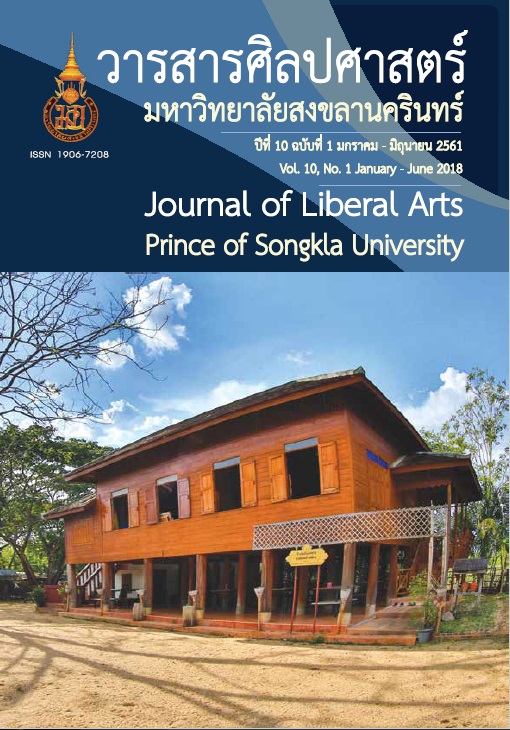Process and conditions of the decision for an entrance into contract farming system of farmers in Nakhon Pathom Province
Keywords:
process for an entrance into the contract farming system, contract farming, farmersAbstract
The study aimed at studying the process and conditions farmers’ decision for an entrance into contract farming system. The in-depth interview and observation techniques were employed in the data collection process of this qualitative research. Twenty-one in-depth interviews were conducted with farmers who have experience in contract farming system in Nakhon Pathom Province. The data collected were analyzed using content analysis. Results were presented descriptively.
It was found that the process for an entrance in contract farming consists of six steps: 1) goal setting, 2) creating understanding,
3) self-development, 4) follow-up and attention, 5) harvest and delivery of products, and 6) maintaining standards of the products. The starting points of entering into the contract farming system of some farmers were the same while others were not. They included problems in life, others’ persuasion, experience from learning, support from family, seeing others’ success, ideology of being an agriculturist, and company’s proposals and contact. These were reinforcement that attracted farmers to the contact farming system. However, for the contact farming system to be successful continuously, the following five conditions are required: 1) benefits, 2) reliability, 3) friendship, 4) confidence in group leaders, and 5) interactions in the group. These conditions also play an important role in decision-making among farmers to enter into the contact farming system.
References
Anderson, M. L., & Taylor, H. F. (2013). Sociology: The essentials. (7thed.). Belmont, CA: Wadworth, Cengage Learning.
Isranews. (2014). Contract farming, a lesson learned to answer a question “Why must the slave contract be changed?”. Retrieved from http://www.isranews.org/isranews-scoop/item/31479-contract.html. [In Thai]
Provincial Administration Development and Promotion Bureau, Office of the Permanent Secretary for Interior. (2011). Contract farming. Retrieved from http://jpp.moi.go.th/ detail.php?section=11&i=72. [In Thai]
Sungkep, T. (2012). Sustainable development. Bangkok, Thailand: Chulalongkorn University Press. [In Thai]
Sutthinarakorn, W. (2014). Participatory action research and conscientization. Bangkok, Thailand: Siam Parithas Publishing. [In Thai]
Thailand Development Research Institute. (2014). What is contract farming?: Profitable or unprofitable for Thai farmers. Retrieved from http://tdri.or.th/tdri-insight/thaipost-2014-10-31/. [In Thai]
UNIDROIT, FAO, & IFAD. (2015). UNIDROIT/FAO/IFAD legal guide on contract farming. Rome: International Institute for the Unification of Private Law: UNIDROIT, Food and Agriculture Organization of the United Nations: FAO, and International Fund for Agricultural Development: IFAD.
Will, M. (2013). Contract farming handbook. Berlin: Federal Ministry for Economic Cooperation and Development.
Downloads
Published
How to Cite
Issue
Section
License
The authors retain the copyright to their article but the Journal of Liberal Arts, Prince of Songkla University reserves the exclusive rights to first publication.






